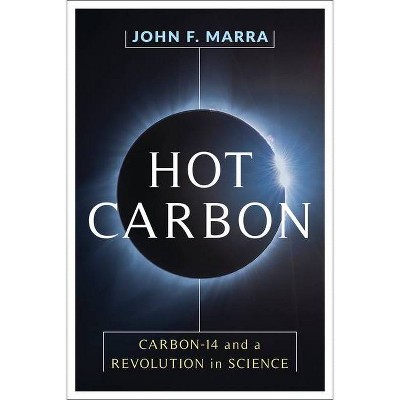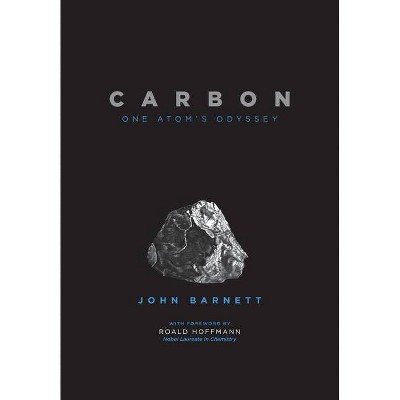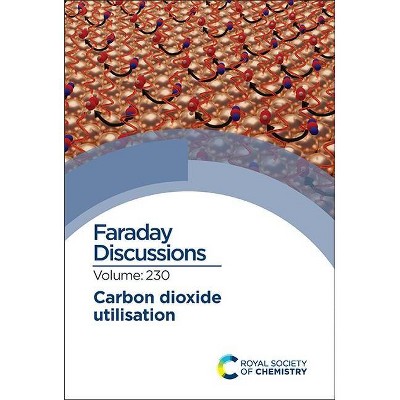Hot Carbon - by John F Marra (Hardcover)

Similar Products
Products of same category from the store
AllProduct info
<p/><br></br><p><b> About the Book </b></p></br></br>There are few fields of science that carbon-14 has not touched. In <i>Hot Carbon</i>, John F. Marra tells the untold story of this scientific revolution, weaving together the workings of the many disciplines that employ carbon-14 with gripping tales of the individuals who pioneered its possibilities.<p/><br></br><p><b> Book Synopsis </b></p></br></br>There are few fields of science that carbon-14 has not touched. A radioactive isotope of carbon, it stands out for its unusually long half-life. Best known for its application to estimating the age of artifacts--carbon dating--carbon-14 helped reveal new chronologies of human civilization and geological time. Everything containing carbon, the basis of all life, could be placed in time according to the clock of radioactive decay, with research applications ranging from archeology to oceanography to climatology. <p/>In <i>Hot Carbon</i>, John F. Marra tells the untold story of this scientific revolution. He weaves together the workings of the many disciplines that employ carbon-14 with gripping tales of the individuals who pioneered its possibilities. He describes the concrete applications of carbon-14 to the study of all the stuff of life on earth, from climate science's understanding of change over time to his own work on oceanic photosynthesis with microscopic phytoplankton. Marra's engaging narrative encompasses nuclear testing, the peopling of the Americas, elephant poaching, and the flax plants used for the linen in the Shroud of Turin. Combining colorful narrative prose with accessible explanations of fundamental science, <i>Hot Carbon</i> is a thought-provoking exploration of how the power of carbon-14 informs our relationship to the past.<p/><br></br><p><b> Review Quotes </b></p></br></br><br><i>Hot Carbon</i> offers a timely perspective on how mind-bogglingly connected our planet is - and how 14 C will continue to be important in helping us to understand what lies ahead.--True Viral News<br><br>[A] remarkable history of carbon-14.--Observer<br><br>It has been a joy to read an academic book where the author did not seek to dazzle by his own brilliance. It was even a greater joy to find a narrative strong enough to sustain my interest from beginning to end.--Richard Joyner "Times Higher Education "<br><br>Wonderfully engaging...<i>Hot Carbon</i> offers a timely perspective on how mind-bogglingly connected our planet is -- and how 14C will continue to be important in helping us to understand what lies ahead.--Nature<br><br>The more times I read this book, the more favorably impressed I am with the clarity and drama of the narrative. Marra's work will be very well received and appreciated by those interested in how science advances. This is true particularly now, when there is so much controversy surrounding the validity of science per se.--Richard T. Barber, Harvey W. Smith Professor Emeritus of Biological Oceanography in the Division of Earth and Ocean Sciences, Duke University<br><br>You may never have heard of carbon-14, but from chemistry to physiology to oceanography, no isotope has affected more aspects of modern life. With precision and verve, oceanographer John F. Marra profiles the most important isotope on earth.--Eli Kintisch, correspondent, <i>Science</i> magazine<br><br>This is an engaging and witty account of the discovery of carbon-14 - there are surprising twists and turns along the way. With its entertaining descriptions of carbon-14's role in understanding fundamental life processes, dating archaeological specimens, and chronicling past climate, this book is a page-turner for anyone interested in the history of scientific discovery.--James J. McCarthy, Alexander Agassiz Professor of Biological Oceanography, Harvard University<br><p/><br></br><p><b> About the Author </b></p></br></br>John F. Marra is professor of earth and environmental sciences and director of the Aquatic Research and Environmental Assessment Center at Brooklyn College. He was previously a research scientist and associate director of the Division of Biology and Paleoenvironment at Columbia University's Lamont-Doherty Earth Observatory.
Price History
Price Archive shows prices from various stores, lets you see history and find the cheapest. There is no actual sale on the website. For all support, inquiry and suggestion messages communication@pricearchive.us




















